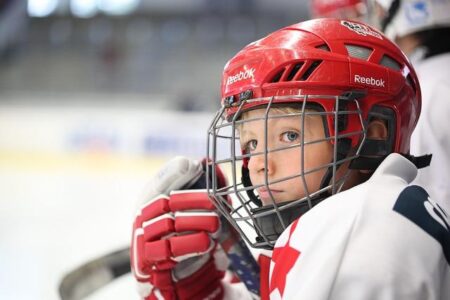“Love Island USA,” the reality dating show that captivated millions with its blend of romance and competition, is now at the center of a growing conversation about the darker side of fandom. As the series gains popularity, concerns are mounting over toxic behavior among its fanbase, raising questions about the impact of intense viewer engagement on both contestants and the broader social media landscape. This development signals a new era in how audiences interact with reality television, prompting Time Magazine to examine the complex dynamics behind “Love Island USA”‘s passionate – and increasingly problematic – following.
Love Island USA’s Rise Sparks Toxic Fandom Culture
Since its debut, the reality show has captivated audiences with its mix of romance, drama, and high-stakes competition. However, its popularity has also given rise to a fanbase characterized by aggressive behavior and intense online disputes. Social media platforms have become battlegrounds where admirers and detractors clash over alliances, eliminations, and personal conduct, often resulting in harassment and toxic interactions that overshadow the entertainment value. The show’s format, which stokes emotional investments and polarizing opinions, inadvertently fuels this volatile community culture.
Key elements contributing to the toxicity include:
- Anonymous interactions: Social media anonymity emboldens fans to engage in abusive commentary without accountability.
- Parasocial relationships: Viewers develop one-sided emotional bonds leading to fierce defense or condemnation of contestants.
- Competitive loyalty: Devoted fanbases adopt a “win-at-all-costs” mentality, often resulting in aggressive online factions.
| Aspect | Impact on Fandom |
|---|---|
| Social Media | Breeding ground for conflict and misinformation |
| Contestant Storylines | Emotional investment fuels passionate disputes |
| Fan Loyalty | Creates exclusionary and aggressive subgroups |
Examining the Impact of Online Harassment on Cast Members and Viewers
Online harassment targeting cast members of reality television shows like Love Island USA has escalated beyond mere criticism into a relentless barrage of personal attacks. Contestants often find themselves the recipients of vitriolic messages on social media platforms, which can severely impact their mental health and public image. The anonymity and immediacy of digital fandom have blurred the lines between enthusiastic support and toxic obsession, leaving many participants vulnerable to anxiety, depression, and public scrutiny that extends far beyond the show’s airtime.
Viewers, too, are caught in the turbulent crossfire of this toxic fandom. The escalating confrontations in comment sections and fan forums create a hostile environment, where differing opinions often dissolve into abuse and cyberbullying. This atmosphere fosters a community fractured by intense tribalism and emotional exhaustion. Below is a snapshot illustrating the common forms of online harassment linked to the show:
| Type of Harassment | Frequency | Typical Targets |
|---|---|---|
| Doxxing | Moderate | Lead Islanders |
| Hate Comments | High | New Cast Members |
| Threats & Intimidation | Low | Contestants with Large Followings |
| Trolling | Very High | Any Participant |
- Casting challenges: Fear of harassment impacts who auditions.
- Mental health support: Increased need for counseling and aftercare.
- Community moderation: Platforms attempting stricter enforcement of guidelines.
Strategies for Promoting Accountability and Positive Engagement in Reality TV Communities
To counteract the increasingly volatile nature of reality TV fandoms, platforms and producers must champion clear community guidelines that discourage harassment and misinformation. Empowering moderators with advanced tools to swiftly address toxic behavior fosters a safer environment where fans can engage constructively. Additionally, integrating educational campaigns around digital empathy can shift the culture from passive consumption to active, respectful participation.
Transparency from showrunners about behind-the-scenes decisions and contestant welfare encourages accountability, diffusing speculation that often fuels negativity. Engagement strategies such as fan forums, live Q&A sessions, and moderated comment sections can redirect passion into positive discourse. The following table highlights key tactics and their impact on fostering healthier fan communities:
| Strategy | Implementation | Impact |
|---|---|---|
| Guideline Enforcement | Automated filters and active moderators | Reduces hate speech and trolling |
| Transparent Communication | Regular updates from producers | Builds trust and reduces rumors |
| Community Engagement | Live Q&As and moderated forums | Channel energy into positive interaction |
| Educational Initiatives | Digital empathy campaigns | Promotes respectful online behavior |
The Conclusion
As “Love Island USA” continues to captivate audiences, the rise of a more toxic fandom marks a troubling shift in how reality television communities engage with both the show and its participants. This evolving dynamic underscores broader cultural questions about social media’s role in shaping fan behavior and public discourse. Moving forward, industry stakeholders and viewers alike face the challenge of fostering a more responsible and respectful fan environment, one that balances passionate engagement with empathy and accountability.




